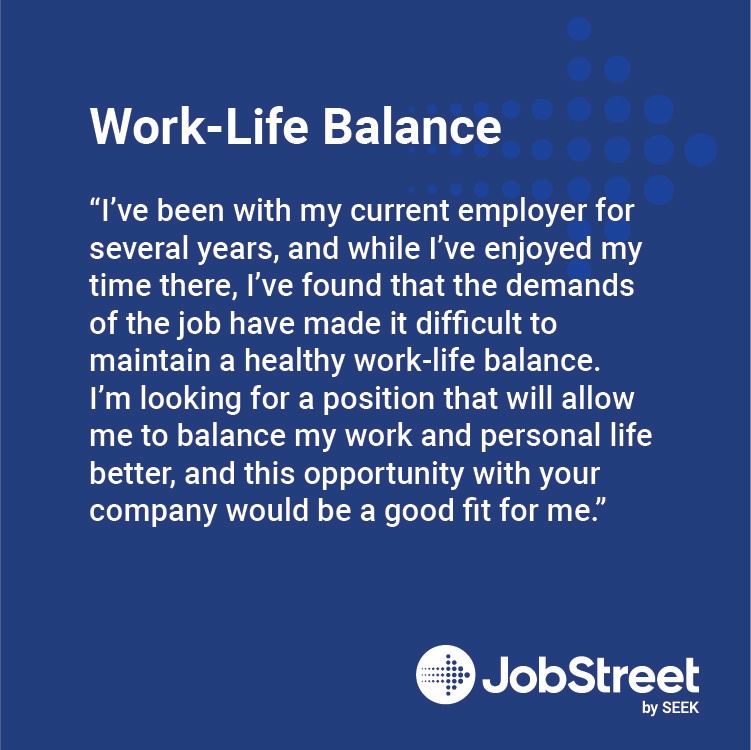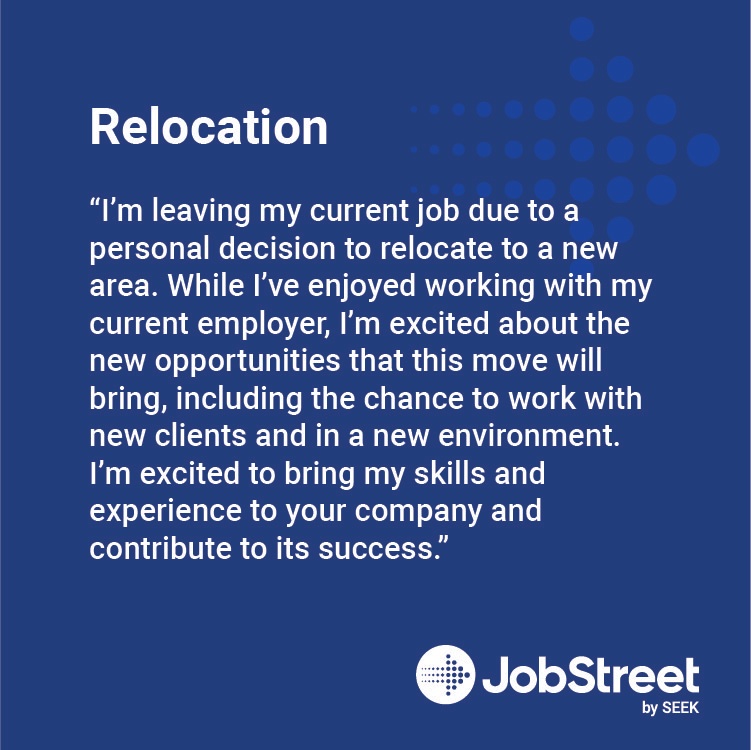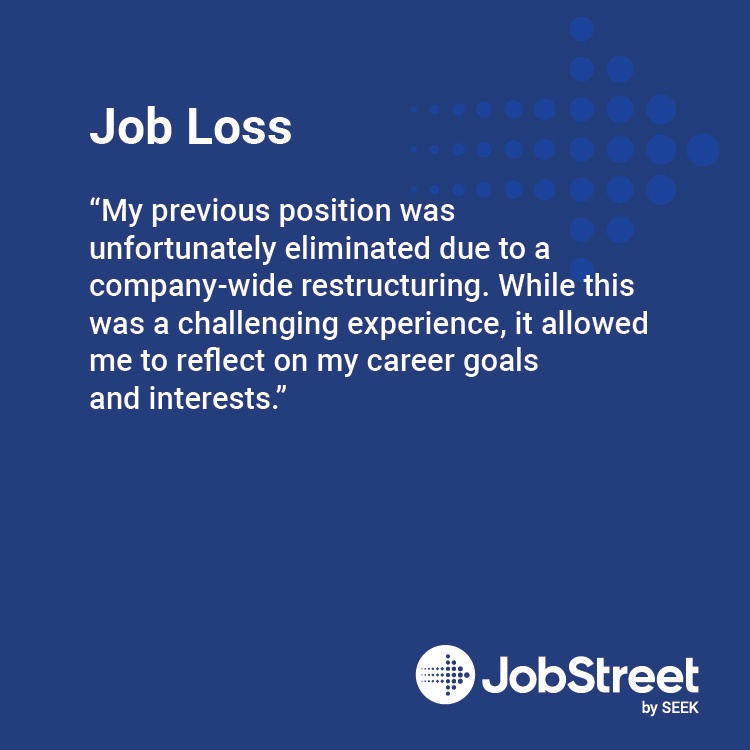12 professional ways to answer ‘Why are you leaving your job?’
Introduction
In the words of science genius Albert Einstein, "To know the future, look at the past."
When you’re interviewing for a new job, and your recruiter wants to get to know you, they’ll inevitably ask about your motivations for leaving your previous job to understand your reasons for applying for a position with them.
"Why are you leaving your job?" is a staple question in job interviews. It gives employers an insight into your work history and lets them know if the job suits you. Answering the question effectively shows your recruiter that you are self-aware and professional in speaking about positive or even negative circumstances.
Asking this question may also be a recruiter's way of screening for red flags. The way you articulate your valid reasons for leaving a job, the circumstances of your previous work, and your career motivations is crucial.
This article will explore the best ways to answer this question, provide examples of effective responses, and discuss what you shouldn’t say.
- Understanding the question
- Alternative ways interviewers could ask this question
- Reasons for leaving a job
- How to craft an effective response
- How to answer the question in a job application
- More examples of good answers
- Summary
- Frequently asked questions (FAQ)
Understanding the question
Before crafting an effective response, let's break down what the interviewer is looking for.
The question "Why are you leaving your job?" is designed to assess your motivations and values as an employee. Employers want to know that you are leaving for professional reasons and not just running away from problems in your current position. They also want to ensure that you have realistic expectations for your future role, and are a good fit for the company culture.
Common recruitment myths about this question include thinking that the interviewer is trying to catch you in a lie, or that you never mention negative experiences at your current job. While it's essential to frame your response positively, it's also important to be honest and transparent. Be straightforward about your experiences and your motivations for leaving your current job, or for having left the last one.
Alternative ways interviewers could ask this question
While "Why are you leaving your job?" is the most common way that interviewers ask about your reasons for leaving, they may phrase the question in different ways. Here are a few examples:
- What motivated you to look for new job opportunities?
- Can you tell me what led you to apply for this position?
- What prompted you to leave your previous job?
- What are the reasons behind your decision to seek new employment?
- Can you explain why you're interested in working with our company?
- What factors contributed to your decision to leave your previous employer?
- What inspired you to pursue this opportunity?
- Can you walk me through the thought process behind your job search?
- What are the primary reasons for your desire to leave your current job?
- What led you to believe that this position is a good fit for your career goals?
Reasons for leaving a job
There are various reasons why someone might choose to leave their job. Some are personal, such as the need for work-life balance, while others are professional, such as the desire for career advancement. Let's explore some common reasons for leaving a job and how to effectively explain them in an interview.
Better opportunities

According to Randstad Singapore's Workmonitor survey, 30% of respondents have changed jobs in the first half of 2021. Fifty-eight percent said they are confident that they will have more job opportunities to consider.
One of the most common reasons for leaving a job is to pursue better opportunities for career advancement. This could include a higher salary, better benefits, or a more senior position within the company. When explaining this reason for leaving, it's important to highlight specific career goals and how the position you're applying for aligns with them.
Work-life balance

Another good reason for leaving a job is to seek a better work-life balance. You could be leaving a job due to stress. You may want more flexible hours, the ability to work remotely, or a reduced overall workload. When explaining this reason for leaving, provide specific examples of how the current job impacts your work-life balance and how the new opportunity would address those issues.
Company culture

Sometimes people hand in their resignations because they feel like there's a mismatch between their personal values and the company culture. When discussing this reason during an interview, be ready with evidence to support your claim, and explain how the new company aligns with your values.
Job satisfaction

Another common reason people leave their jobs is a lack of job satisfaction. They may feel unfulfilled, bored with the work, or that the job isn't a good fit for their skills and interests. When discussing this reason during an interview, give specific examples of your issues and what you're looking for in a new position.
Relocation

A SEEK Asia survey has found that Singapore is the 8th most attractive country to relocate to for work. When discussing this reason during an interview, show the recruiter your enthusiasm for working in Singapore. Explain how the new job aligns with your career goals.
Job loss

Here’s a tough one. Not everyone leaves a job voluntarily. TheStraits Timesreports that retrenchment numbers are expected to hit about 4,000 in the first quarter of 2023, and recruiters understand that many job seekers are recovering from the impacts of a volatile job market. If you were laid off or retrenched, provide context on your company's challenges, and show your resilience and adaptability in finding a new job.
If you have been fired, say you were “let go” instead in your interview or application. Be honest about the circumstances that led to the end of your job when asked, without mentioning any personal information that could hurt your image. Emphasise what you learned from your mistakes that led to personal growth, and that you can contribute to a new job.
How to craft an effective response
Now that you understand some common reasons for leaving a job and how to explain them to potential employers, follow these tips to craft an effective response to this question.
Tailor your answer
The first step to crafting an effective response is tailoring it to the job and company you are interviewing for. Research the company and the job you're applying to, and think about how your reasons for leaving your current job relate to this new opportunity. For example, if you are looking for better work-life balance, you could say something like: "I am excited about this opportunity because I noticed in my research that your company encourages employees to maintain a healthy balance between work and personal life. Work-life balance is important to me, and I would thrive in a work environment supporting this.”
Address potential red flags
Remember that potential employers may look for red flags in your response to this question. For example, if you are leaving your job due to conflict with your manager, an employer may worry that you are challenging to work with or have poor communication skills.
If you are leaving your job due to a lack of career advancement opportunities, an employer may worry that you are not ambitious. They may think that you will quickly become dissatisfied with this new job. Be prepared to address any potential issues in your response, and provide evidence to support your claims. A sample answer could be, "I would have wanted to persevere at my last company until I earned the desired position, but the opportunity was simply unavailable. I hope to continue working on my career goals in a company that will help me reach them."
Keep your response positive
Even if your reason for leaving is negative, answering the question on a positive note puts the focus on the future opportunity you're eyeing rather than on the past. Show that you are a self-starter in creating positive change in your life. Show that you're excited about the new opportunity and not just trying to escape a bad situation.
For example, if you left because you were on bad terms with your supervisor, it won't help you get hired if you badmouth them or the company. Instead, talk about how you learned to collaborate and thrive with people who are different from you. Emphasise that you are now looking for like-minded people to achieve shared goals.
What not to say
When it comes to job interviews, what you say (or don't say) can significantly impact your chances of landing the position. Yes, there are valid reasons for leaving a job. One thing you want to avoid, however, is discussing negative experiences or people at your current job. Badmouthing can come across as unprofessional. Your interviewer may wonder if something is wrong withyou!
Lying about the reason for leaving can be a major turnoff and make you seem untrustworthy. Being too vague or dismissive can also hurt your chances.
Try to balance being honest and forthcoming without oversharing or sounding like you're not interested in the position. By avoiding these pitfalls, you can position yourself as a strong candidate who is professional, honest, and engaged.
How to answer the question in a job application
If you're applying for a job online, you may be required to provide your reason for leaving your current or previous position on the application. An effective, acceptable answer is crucial. Recruiters use this information to screen candidates before they even get to the interview stage. Here are a few tips for answering this question on a job application:
Be honest
It's important to be up front about why you're leaving your current or previous job. Trying to cover up the real reason or lying about it can haunt you later in the hiring process. If your potential employer finds out that you were not honest about your reason for leaving, they may question your integrity and ability to be truthful in other aspects of the job.
Keep it brief
When answering this question on a job application, keep your response brief and to the point. The application form may have limited space to write your answer, so keep it concise. Focus on the most important reason for leaving, and avoid going into too much detail.
More examples of good answers
Let's provide more examples of the common and best reasons for leaving to help you practise answering this question in any job application.
Better opportunities
"I've enjoyed my time at my current job, but I'm looking for a new opportunity to take my career to the next level. This position at your company caught my eye because it offers more seniority and the chance to take on new challenges that align with my career goals. I'm excited about this role's potential for growth and development."
Work-life balance
"I've found that my current job has been demanding a lot of my time, and I'm struggling to maintain a healthy work-life balance. I'm looking for a position that will allow me to have a more predictable schedule and spend more time with my family."
Company culture
"I've found that the company culture at my current job doesn't align with my values. I'm looking for a company that values collaboration and teamwork, and supports employee growth and development. From what I've seen, your company strongly emphasises these values, and I think it would be a great fit for me."
Job satisfaction
"I've found that I'm not feeling fulfilled in my current job, and I'm looking for a new role that will allow me to think outside the box and take the initiative rather than spending my day following a templated protocol."
Relocation
"I have long aspired to enjoy the quality of life in Singapore. I admire Singapore's competitive standards, work ethic, and government support for employee development, and I wish to contribute my skills to its dynamic workforce."
Job loss
"I was unfortunately let go from my previous job due to budget cuts. While it was a difficult situation, I tried to make the most of it by reflecting on my career goals and figuring out what I wanted to do next. I am excited to explore new opportunities and grow my career."
Summary

Answering the question “Why are you leaving your current job?” can be tricky, but it is an essential part of the job search process. By preparing ahead of time, understanding the question, and crafting a thoughtful response, you can leave a positive impression on potential employers and increase your chances of landing your next job.
Remember to be honest, concise, and positive in your answer, and to tailor your response to the specific job and company you are applying for. With these tips, you can effectively and credibly explain your reasons for leaving your current job and demonstrate your value as a candidate.
Ready for your answers to interview questions? Make it easier for recruiters to find you by updating your profile on JobStreet. Get timely Career Advice and find your dream job by downloading the JobStreet app on the App Store or Google Play .
Frequently asked questions (FAQ)
- What if my reason for leaving is because of a conflict with my manager?
If your reason for leaving your previous job was a problem with your manager, it's generally best to avoid mentioning that in a job interview. Instead, focus on the positive reasons why you're interested in the new job, and the potential for growth and development.
- Should I mention that I was fired or let go from my previous job?
It's typically only advisable to bring it up if asked directly. If asked, be honest and explain the circumstances without being defensive or placing blame on others.
- What if I don't have a specific reason for leaving?
If you don't have a specific reason for leaving, it's okay to be honest about that. You can explain that you're looking for new challenges and opportunities for growth and development, or that you're interested in exploring new industries or career paths.
- Is it ever okay to lie about the reason for leaving my current job?
That’s never a good idea. It can haunt you later on and damage your professional reputation. It's always best to be honest and transparent, while framing your answers in a positive light.
- Can I talk about salary as a reason for leaving my current job?
It's generally not advisable to say that your salary was the reason for leaving your current job. You can come across as being overly focused on compensation, rather than the job itself. If pressed, you can explain that you're looking for new opportunities with greater potential to support your growth and well-being.
